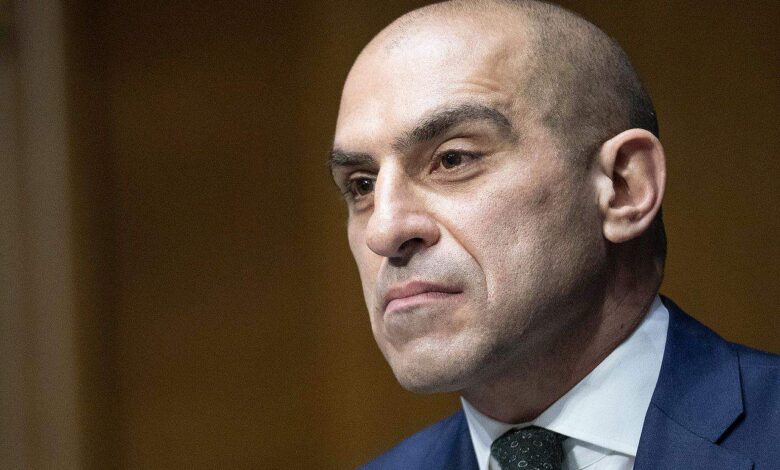CFTC and SEC Clash Over Jurisdiction in US

CFTC and SEC Clash Over Jurisdiction in US
With the United States struggling to bring about regulatory clarity for the crypto space, the ongoing discord between two pivotal watchdogs sparks concerns about potential implications.
The head of the Commodities Futures Trading Commission (CFTC), Rostin Behnam, has once again indicated that most crypto assets are considered commodities according to existing laws. He also acknowledged an ongoing “turf war” among regulatory bodies, particularly the Securities and Exchange Commission (SEC) and the CFTC, regarding the jurisdiction to regulate the digital asset industry.
Turf War
During an appearance on CNBC’s “Squawk Box,” the CFTC Chair clarified that “under existing law, many of the tokens constitute commodities,” providing some regulatory clarity on the status of crypto assets in the United States. Highlighting the regulatory complexities faced by the crypto industry, Behnam emphasized the pressing need for legislative action, noting that members of Congress are actively working to understand the regulatory landscape.
While the United States remains a prominent country for cryptocurrencies, alongside Australia and Brazil, the lack of regulatory clarity and consistent enforcement actions against crypto businesses are significant deterrents for enterprises operating in the region.
Behnam pointed out the challenge of a “turf war” among various regulatory bodies in the country, specifically between the SEC and the CFTC, regarding which agency should regulate the industry. This ongoing conflict has become a major obstacle in establishing clear regulatory guidelines for digital assets and the broader crypto industry.
The CFTC Chair’s perspective on crypto regulation differs from that of SEC Chair Gary Gensler, who consistently asserts that crypto intermediaries engage in securities transactions and should fall under his agency’s oversight.
Rift Between SEC and CFTC
Between 2019 and 2023, the crypto industry in the United States directed $56.44 million towards lobbying efforts, with $20.2 million allocated in the current year alone, constituting 19.7% of the total expenditure on Wall Street, as per CoinGecko’s estimates.
Despite this considerable financial influence, regulatory watchdogs in the country, notably the SEC, have intensified their supervision, revealing a paradox where industry impact clashes with regulatory scrutiny.
Reports of clashes between the two entities surfaced after Behnam urged Congress to assume a more central role in guiding federal agencies toward establishing a regulatory framework for cryptocurrencies. He then highlighted the historically effective collaboration between the two but pointed out that the case for digital assets is unique.
Contrary to the perceived discord, Dan M. Berkovitz, former SEC General Counsel and former Commissioner at CFTC, does not believe there is a “rift” between the CFTC and the SEC in regulating digital assets.
While speaking with CryptoPotato last month, Berkovitz acknowledged the urgent need for Congress to grant additional authority over non-security digital assets in the spot market. While he admitted that some differences are normal due to their respective jurisdictions, but did not see them rising to the level of a substantial “rift.”
Binance Free $100 (Exclusive): Use this link to register and receive $100 free and 10% off fees on Binance Futures first month (terms).